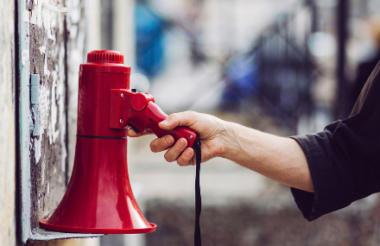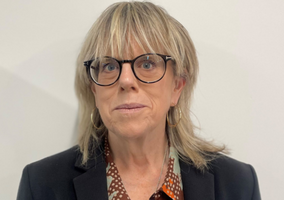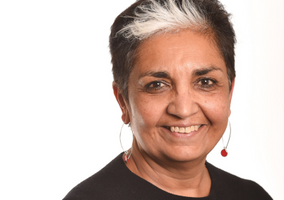Regular readers will recall that in my last editorial, I was looking forward to the opening panel discussion at this year’s Trustee Exchange. The expert panel considered whether and how charities could have a louder voice on the big issues of the day, in light of research showing that just 2% of guests on TV current affairs programmes such as Question Time are from civil society.
During the session, panel chair Sue Tibballs, CEO of the Sheila McKechnie Foundation, asked the audience whether they thought charities should be speaking out on issues beyond their immediate cause. The room was split – while slightly more than half thought they should, a significant minority did not agree, and one delegate queried whether doing so is an appropriate use of a charity’s time and resources. After all, donors and volunteers support a particular charity because they care about its specific cause, she suggested, and may not welcome a wider interpretation of its mission.
I think it all comes back to the charity’s beneficiaries and if they are affected by the issue at hand. For example, it may not seem immediately obvious that an animal charity should have anything to say on the cost-of-living crisis. But when you learn that thousands more pets have been abandoned since inflation began to soar, then the CEO of RSPCA can speak with just as much relevance and authority to the cost-of-living issue as, say, the CEO of Iceland supermarket.
Charities operate at the sharp end of service delivery, plugging gaps in statutory services and rescuing those that fall through the cracks of mainstream provision. For this reason, they have every right to highlight and challenge the wider systemic and structural problems that give rise to their charitable purpose.
Of course, getting heard is not only about raising public awareness of problems through the media, but also about being in the room when public policy is developed.
There are some great examples of this in this year’s Charity Awards shortlist. In one, South West Grid for Learning used its years of experience helping schools to protect pupils from being exposed to harmful content online to influence the Online Safety Bill. In another, CPRE, the countryside charity, persuaded the government to legislate for an ambitious new target for the protection and restoration of hedgerows, as part of the drive towards net zero. The first-hand knowledge and experience that charities can bring to societal issues gives them the authority to have a view and to share that view, if they believe things need to change. Surely it is a dereliction of their duty if they don’t.
That said, a charity is much more likely to get traction on a topic if there is a clear and obvious synergy with its cause. You wouldn’t, for instance, expect the RSPCA to have much to say about online safety.
It may be stating the obvious, but another lesson that shone through strongly from both the Trustee Exchange panel debate and the Charity Awards shortlist was the fact that a charity’s CEO is not always the best person to speak on its behalf. It can be much more powerful for those with lived experience of the cause to have the voice. Indeed, veteran researcher Joe Saxton told the conference that polling consistently shows that MPs much prefer to hear directly from charities’ beneficiaries – though it is vital of course to carefully consider the risks of putting people in the limelight.
If your charity needs any more incentive to make itself heard on important issues of the day, you will see that CIVICUS has again downgraded the UK in its global index of civic freedoms – the country became “narrowed” in 2021 and has now been rated “obstructed”. Another raft of proposed new laws are threatening our democratic rights and freedoms, and this affects all charities. Agitating for reform must go hand in hand with providing relief.
Related Articles












